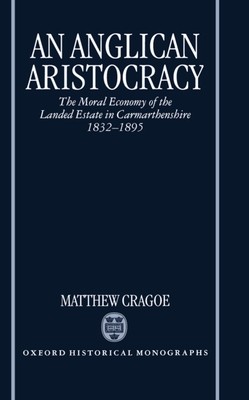
- We will send in 10–14 business days.
- Author: Matthew Cragoe
- Publisher: Clarendon Press
- ISBN-10: 0198205945
- ISBN-13: 9780198205944
- Format: 16.5 x 22.9 x 2.4 cm, hardcover
- Language: English
- SAVE -10% with code: EXTRA
Reviews
Description
This account of nineteenth-century Carmarthenshire emphasizes the social and political dominance of the Anglican and landowning nobility and gentry for much of the period. Matthew Cragoe explores the nature and public roles of a governing élite, arguing that their influence was not simply a function of their members' wealth or their control of local government and the administration of the law, but had a vital ideological dimension in the aristocracy's paternalistic ethic, which found powerful and practical expression in the 'moral economy' of the landed estate.
EXTRA 10 % discount with code: EXTRA
The promotion ends in 17d.04:30:45
The discount code is valid when purchasing from 10 €. Discounts do not stack.
- Author: Matthew Cragoe
- Publisher: Clarendon Press
- ISBN-10: 0198205945
- ISBN-13: 9780198205944
- Format: 16.5 x 22.9 x 2.4 cm, hardcover
- Language: English English
This account of nineteenth-century Carmarthenshire emphasizes the social and political dominance of the Anglican and landowning nobility and gentry for much of the period. Matthew Cragoe explores the nature and public roles of a governing élite, arguing that their influence was not simply a function of their members' wealth or their control of local government and the administration of the law, but had a vital ideological dimension in the aristocracy's paternalistic ethic, which found powerful and practical expression in the 'moral economy' of the landed estate.


Reviews